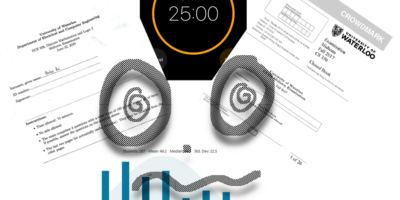Canada is not doing enough to aid refugees from Syria. Our hesitance to take more refugees is contributing to the many drowning deaths as Syrian refugees flee Syria.
This is not the first refugee crisis. However, as with any conflict, it is also exactly the same as the conflicts that have come before it. In this kind of war, there are no distinct battlegrounds. Fighting is not between two armies that might accidentally get civilians caught in-between, but actually targets civilians as a way to draw attention to a cause. It is all about guerrilla warfare.
The enemy doesn’t actually need to be among us, at least not at first. Attackers could be anyone; they don’t need secret training camps or naturalization in a specific country. The internet gives anyone access to a mountain of information, building layouts, usage patterns etc. All they need to plan and orchestrate a large scale terrorist attack without ever going to that place.
Today the refugees are fleeing drones just as much as the type of attackers you can look in the eye. Are Syrians a threat? There are many lonely people on the internet searching for a sense of belonging who can easily be radicalized to turn against those around them. We have been seeing people being recruited to ISIS over the internet from places like Canada and England for some time. Even in the recent Paris shooting, the culprits were from France or an EU country.
Canada has taken in refugees in the past, the amount coming in largely depending on the government in power. At the end of the Vietnam war Canada welcomed 110,000 Vietnamese refugees in the period of just over 6 years. At the time, the Vietnamese refugees were called the boat people, because a large percent of the asylum seekers left their home countries by boat. In the case of Vietnam there were only around 800,000 refugees between 1975 and 1990 with the bulk being between 1975 and 1985. Currently, over 4 million Syrian refugees are seeking asylum in other countries, a much larger refugee crisis than after the Vietnamese war.
As of now, over 2 million of the refugees have ended up in Turkey, where 25 refugee camps house approximately 263,000 people. Remaining refugees have streamed into Turkey’s cities where they survive off of under the table jobs. The asylum seekers are considered ‘guests’ instead of ‘refugees’ and as such are legally not permitted to work. Education for children is spotty at best and Turkish citizens are coming to resent the ‘guests’ as the prices of housing and food are rising.
For the Syrian refugees, returning home is not safe, but moving into other countries is often also out of reach. They are left in limbo with no prospects, no rights to work and very little access to education which might set their children up for a better future. This is because of the 1951 Refugee Convention which was set up after the Second World War to deal with the massive streams of refugees coming out of Europe. Because of Turkey’s location it is only allowed to grant permanent asylum to European refugees. Non-Europeans, such as Syrians, can only be granted temporary asylum.
The constraint on Turkey to grant permanent asylum, and thus set up permanent strategies to integrate refugees into society and the economy, is what has pushed Syrians into boats. Now they too are boat people, paying life savings to human smugglers in hopes that the boat they get onto might deliver them safely to Greece’s shores. Taking in only 25,000 refugees does nothing for the current refugee crisis.
Let’s take a pause here for a moment; the 1951 Refugee Convention which is causing all these issues now did benefit its own generation of displaced persons. Between 1946 and 1952 Canada accepted some 200,000 displaced persons from Europe, in particularly Poland, Ukraine and Hungary. Overall, in the eight years after peace was declared some 800,000 new Canadians arrived.
One of these new Canadians, an arrival in 1951 or 1952, was a person very much responsible for who I am today. My Grandfather, Eduard Kristufek, was a Czech citizen very much displaced. Luckily, he was able to work and study after he ran across the border into American-occupied Germany in 1948. He had spent 3 years in Soviet-occupied Prague studying Mechanical Engineering, but was forced from school before finishing his studies. Some charm, wit and the ability to play guitar endeared him to his German hosts, and in several short years he had bounced through several host countries including Sweden and Denmark, none of which would offer him the permanent asylum, and eventual citizenship, which he desired. Canada gave him that chance and he was always incredibly grateful. He always kept his iron ring – earned from U of T on March 25th 1953 – and wore it with pride for all of his working years, a proud Canadian and family man. Among his jobs, he worked for his own company increasing energy efficiency of large process plants, taught energy efficiency and other topics at Mohawk College, and worked in Africa for the UN installing energy systems for rural villages. All this from a single refugee who could have been a sleeper communist agent or hugely anti-Semitic, or a secret Nazi.
We have a choice, to boost people up to become proud, contributing members of society, or to let them be lost. Canada is large; our capacity to bring in new people is much higher than 25,000. Taking so few refugees is laughable. It gives little hope to those languishing in refugee camps or in cities in Turkey. It is commitments like that of Canada to take so few people which forces Syrian refugees to the point where they will get on those boats.
What do we fear? To be fair, there is some preparation required. We do not want to drop a new Canadian in Manitoba in January and leave them to fend for themselves. However, there are many families in Canada already hoping to get more family members here. So why not bring them, allow family members to help each other! The insistence to screen applicants in case of terrorists is laughable. Many refugees have made it out with only the clothes on their backs. What use is it to have a birth certificate if the hospital that issued it has been bombed? What kind of background check can be done on a farmer who has been forced from his farm? A family who has been forced from their farm?
Yes, 25,000 is a lot of refugees. As was pointed out by my opponent, we are still remembered for turning away a ship of Jewish refugees during the Second World War. We are a country of refugees and immigrants. We are an aging country which is in need of young workers. We are in a position to help. So why are we doing so little when there is so much need?




Leave a Reply